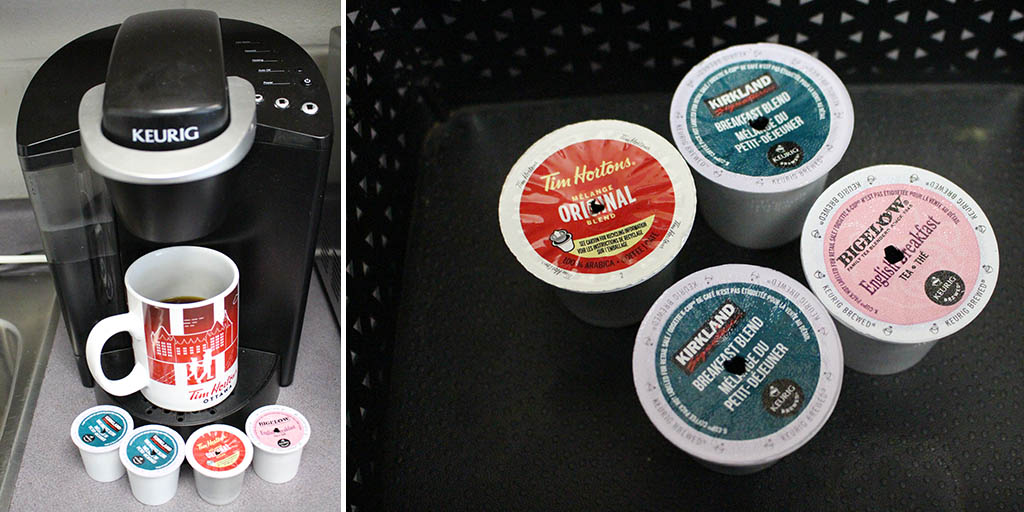K-Cups are K-illing the Environment
 CREDIT: MELISSA NOVACASKA
CREDIT: MELISSA NOVACASKAThough K-Cups are an easy and convenient way to make a warm beverage, these plastic cups are hurting the environment day after day.
They are the epitome of convenience.
Single pods of prepackaged ground coffee, ready and waiting to be inserted into the Keurig machine for a quick, fresh cup of coffee at a fraction of the cost and time of a Tim Horton's or Starbucks and with little mess to boot.
The question is, what is the true impact of this supposed convenience when at one point, according to Killthekcup.org, as of 2014 the number of discarded K-cups were enough to circle the earth 10.5 times?
Michael Pascoe, professor and co-ordinator of horticulture at Fanshawe College and director of the Gardens of Fanshawe College and the A.M. (Mac) Cuddy Gardens had a few words to say regarding the compact environmental killer.
“We've come up with an ultra-convenient method of providing coffee and tea and stuff that consumes plastic and as you know, plastics are one of the biggest polluters on the planet. They don't break down in the ecosystem and that's a huge concern. We're sacrificing ultra-convenience for the environment,” Pascoe said.
The individual coffee pods are made of a non-biodegradable and non-recyclable plastic cup that can only be processed properly in a handful of locations within Canada, but with the addition of the foil lid, a separation of the two must take place in order for the product to be recyclable, something that is not a foreseeable reality for the average Keurig consumer. According to Mariah Manoylov, a contributor for The Red & Black publication, wrote an article regarding the impact of the Keurig and found that K-Cups will take 450 years to decompose in landfill.
Pascoe referenced a sense of obliviousness and a heightened need for change in Canadian society for the increased use of the environment destroying pods.
“I don't think we're quite as aware as we need to or should be. Compared to Europeans etcetera, etcetera, I think they're much more aware,” Pascoe said. “I remember an incident in 2006/2007 when I was in England, I was doing my masters at the time and a fellow on the radio said to everybody, ‘I'm sick of packaging. Let's get rid of the package, let's leave it at the grocery checkout'. We thought maybe one or two people would do it, but it happened, thousands of people did this.”
Better alternatives recommended by the horticulturist include regular coffee machines as the grounds itself are recyclable, or even reusable cups which are compatible with the Keurig machines and allow the consumer to wash and refill the cups at their desire.
For those under the impression that the individual sized cups are cost-friendly, the results may actually be quite surprising. With approximately 11 grams per each cup and at an average cost of 0.57 cents per pod, Keurig drinkers will find themselves paying roughly $25 per pound of coffee.
“Just don't use them” Pascoe said in his final remarks. “Just make a proper cup of tea, a proper cup of coffee, carry a thermos, carry a water bottle. It's not necessary. We're not going to see the consequences of our actions, my generation certainly won't, but it's going to be awful. It's going to be absolutely awful.”














